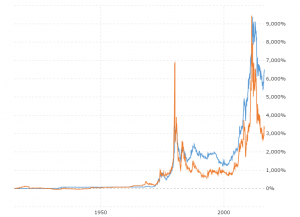European Coin Trading Just Got Complicated
If you like to take your hobby on holiday – and what enthusiast doesn’t – then some changes in German law, that could spread across Europe soon, just made that more difficult.
Visiting coin fairs, and doing some buying and selling, is a popular activity for coin collectors. It’s where you get to meet others like yourself, and keep up with the latest trends. You can find items to expand your collection too, but suddenly it looks like there are problems developing, if Europe, and especially Germany, are your favorite destinations. Even if you don’t travel, this change is sure to be a topic of conversation when coin enthusiasts get together, so what’s the story?
Numismata Munich is a big weekend coin fair held every March. About 150 dealers – and many more collectors – turn up for one of the big events on the collector’s calendar. This last March, at the 2017 fair, some of the arrivals were more interested in picking up dealers than coins. 30 big German policemen turned up, including members of the Arts and Antiques Squad, and arrested five dealers. Some of their stock was also confiscated.
So what was wrong? It seems that Germany has recently updated a law called Kulturschutzgesetz, or the ‘Act for the Protection of Cultural Property‘. This law is designed to keep items of ‘cultural significance’ inside Germany, and reduce or prevent their export. These don’t have to be works of German origin, just part of the cultural heritage of the country. Many other countries have similar laws, but they are usually only directed at major works of art, such as iconic paintings or sculptures, not at something so relatively minor as coins. Although the law dates to the 1950s, it was controversially amended in 2016, in part with the worthy goal of making it harder for terrorists to use antiquities to finances their activities.
One substantial change was the requirement to show that non-German items had been legally imported into the country. To establish that legality, the law requires provenance for the item going back 20 years. That is, you need to be able to show who owned it for the last two decades. Provenance is common in the antiques world, but only the most important coins have it – most change hands with little or no records being kept.
The German Numismatic Society had been one of the main critics of the new law for exactly this reason. They were part of a group that collected 50,000 signatures in an on-line petition, which was enough to make the government lighten the law, but not enough it seems. Given their opposition, it may not even be a coincidence that it was a coin show that was raided just a few months after the law came into force.
The dealers were arrested because they could not show 20 years provenance on some major pieces – all parts of the new law. That 20 years is going to be a big problem for dealers, especially if these changes spread across Europe, and could seriously damage legal coin trading.
By a strange coincidence, the law was adopted on June 23, 2016, the same day the UK voted to leave the European Union. If these changes inhibit coin dealing across Europe, the UK could become the international capital of numismatics, as their current mood is to avoid anything being done in Europe. When did you say the next British coin fair is?
















